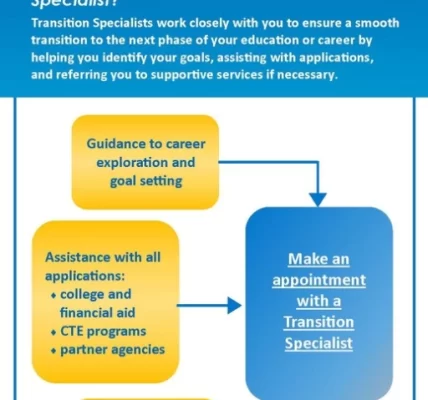Embarking on a career transition can be a daunting but rewarding journey, and adult education programs serve as valuable compasses in navigating this path. Whether you’re looking to switch professions, acquire new skills, or enhance your current expertise, adult education offers a tailored and flexible approach to learning. In this guide, we will explore the benefits of adult education programs and how they can be instrumental in successfully navigating career transitions.
1. **Identifying Career Goals:**
Before diving into an adult education program, take the time to identify your career goals. Reflect on your passions, strengths, and areas for growth. Clarifying your objectives will help you choose a program that aligns with your aspirations.
2. **Researching In-Demand Skills:**
Stay informed about the skills in demand within your target industry. Adult education programs often cater to emerging trends, ensuring you acquire relevant competencies that enhance your employability during a career transition.
3. **Flexible Learning Options:**
Adult education recognizes the demands of your current life and work commitments. Look for programs that offer flexible learning options, such as evening classes, online courses, or part-time schedules, allowing you to balance your education with other responsibilities.
4. **Customized Curricula:**
Adult education programs are designed to address the specific needs of adult learners. Seek programs that offer customized curricula, allowing you to focus on the skills and knowledge directly applicable to your career transition.
5. **Networking Opportunities:**
Leverage the networking opportunities provided by adult education programs. Engage with instructors, fellow students, and industry professionals to expand your professional network, gain insights, and explore potential career paths.
6. **Career Counseling Services:**
Many adult education institutions offer career counseling services to guide you through your transition. Take advantage of these resources to receive personalized advice, explore different career options, and create a strategic plan for your professional development.
7. **Internship and Practical Experience:**
Look for programs that incorporate internships, practical projects, or hands-on experiences. These opportunities not only provide real-world application of your newly acquired skills but also enhance your resume and make you more competitive in the job market.
8. **Financial Aid and Support:**
Investigate the availability of financial aid or support services offered by adult education programs. Many institutions provide assistance with tuition, scholarships, or grants, making the transition more accessible and affordable.
9. **Building a Portfolio:**
Showcase your skills and achievements through a professional portfolio. Document projects, coursework, and any relevant experiences gained during your adult education program to present a comprehensive overview of your capabilities to potential employers.
10. **Staying Adaptable and Resilient:**
Understand that career transitions may come with challenges. Embrace adaptability and resilience as you navigate changes in your professional life. Continuous learning and staying open to new opportunities will contribute to long-term success.
Conclusion:
Navigating career transitions with adult education programs is a strategic and empowering approach to achieving your professional goals. By carefully selecting programs aligned with your aspirations, leveraging networking opportunities, and staying adaptable, you can not only acquire the skills needed for a successful transition but also position yourself as a valuable asset in your chosen field. Embrace the transformative power of adult education as you chart a course toward a fulfilling and rewarding career.













